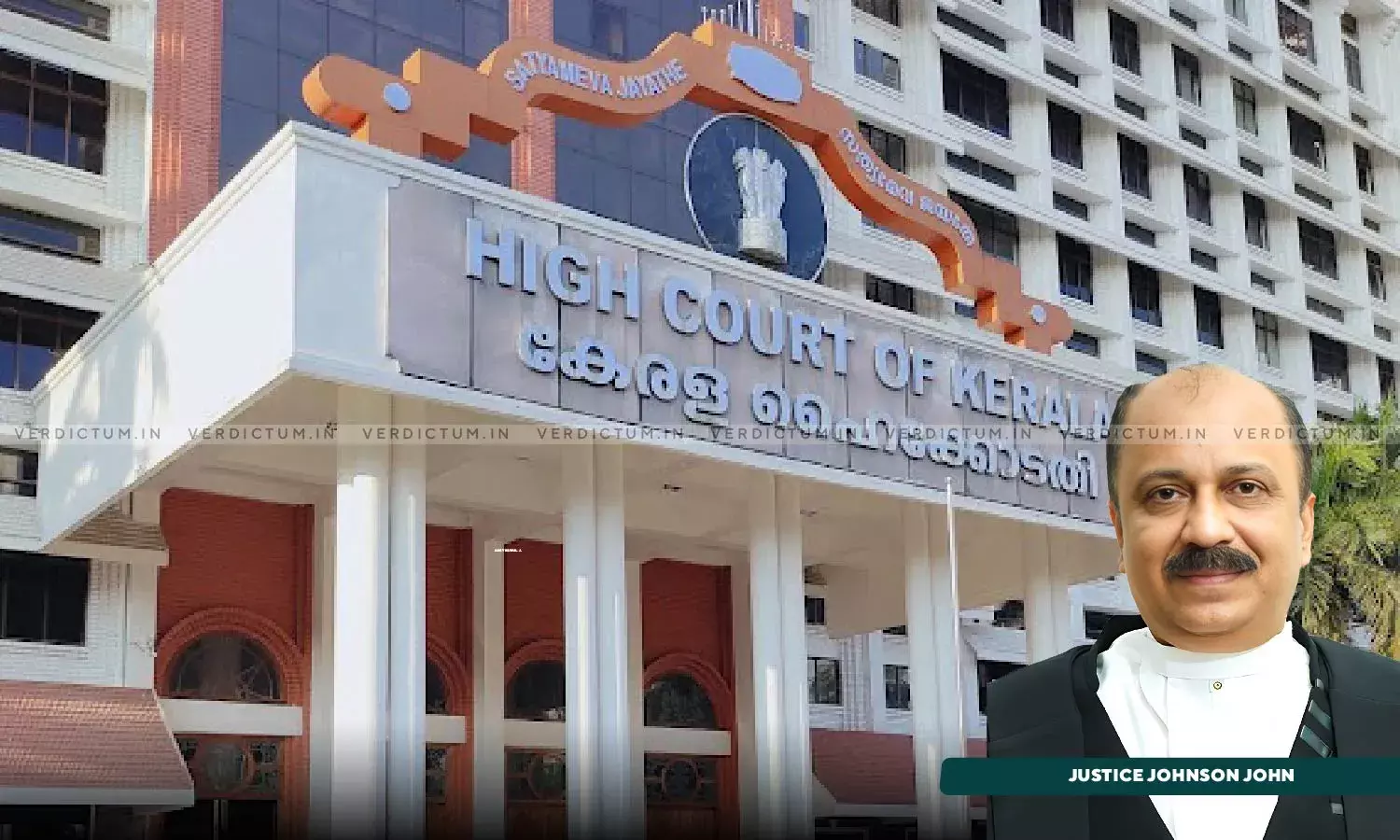Presence Of Accused Or His Pleader Required While Recording Examination In Chief Of Material Prosecution Witness: Kerala High Court Orders Acquittal In NDPS Case
The Criminal Appeal before the Kerala High Court was filed by the accused challenging his conviction under Sections 22(b) and 22(c) of the NDPS Act.

Justice Johnson John, Kerala High Court
While highlighting that the Trial Court, in a criminal case, accepted the chief affidavit of the witnesses as evidence against the accused in violation of Section 276 CrPC, the Kerala High Court has held that the presence of the accused or his Pleader is required at the time of recording the examination in chief of a material prosecution witness.
The Criminal Appeal before the High Court was filed by the accused challenging his conviction and sentence under Sections 22(b) and 22(c) of the Narcotic Drugs and Psychotropic Substances Act, 1985 (NDPS Act).
The Single Bench of Justice Johnson John stated, “Therefore, the presence of the accused or his Pleader is required at the time of recording the examination in chief of a material prosecution witness. The accused or his Pleader has a right to object to a leading or irrelevant question being asked to the witness during the chief examination. Therefore, if the trial court permits the prosecution to file a chief affidavit of a material witness as evidence in a criminal case against the accused, the same will cause serious prejudice to the accused, in asmuch as the entire contents of the chief affidavit can only be treated as an outcome of the leading questions put to the witness.”
Advocate T.P. Santhosh Kumar represented the Appellant, while Public Prosecutor Alex M. Thombra represented the Respondent.
Factual Background
The accused was found in conscious possession of 250 ampoules of Buprenorphone injection Lupigesic, 165 injection ampoules of Diazepam starlium and 60 injection ampoules of Diazep. The Special Judge found the accused guilty and convicted him for the offences as aforesaid. Aggrieved thereby, the accused approached the High Court.
Reasoning
The Bench referred to Section 273 CrPC, which states that all evidence in a criminal trial is to be taken in the presence of the accused, and Section 278 CrPC, which shows that the evidence so recorded is required to be read over to the witness in the presence of the accused.
“It is not in dispute that the trial court accepted the chief affidavit of PWs 1 and 4 as evidence against the accused in violation of Section 276 Cr.P.C…”,it held.
The Bench also referred to the judgment in Ashok v. State of Uttar Pradesh (2024) wherein the Apex Court has held that if the examination-in-chief of a prosecution witness is recorded in the absence of the advocate for the accused, a very valuable right of objecting to the questions asked in examination-in-chief is taken away. The Bench thus held, “Therefore, I find merit in the argument of the learned counsel representing the appellant that the impugned judgment of the trial court is liable to be set aside on that ground alone”, it noted.
Finding that the case of the prosecution was not free from suspicion and the accused was entitled to the benefit of a reasonable doubt, the Bench set aside the impugned judgment and acquitted the appellant of the offences charged against him.
Cause Title: Askaf v. Sub Inspector of Police (Neutral Citation: 2025:KER:66384)
Appearance
Appellant: Advocates T.P. Santhosh Kumar, Anand Mahadevan
Respondent: Public Prosecutor Alex M. Thombra

